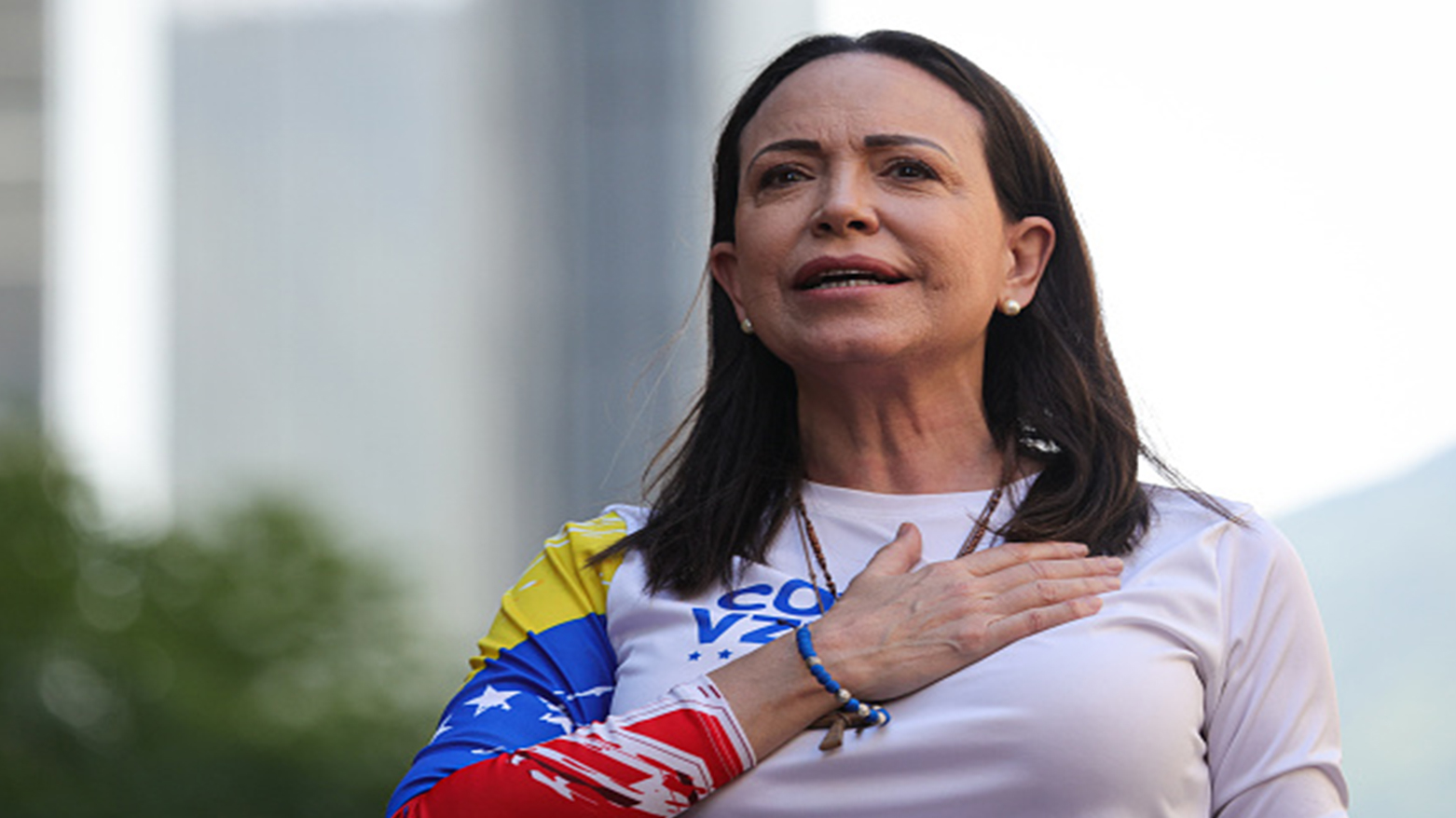Venezuela’s Nobel Laureate Machado Speaks With Netanyahu, Linking Maduro–Iran Alliance to Middle East Conflicts
Machado warns that Venezuela’s Maduro regime is deeply aligned with Iran and its regional proxies — including Hamas and Hezbollah — framing Caracas as part of a wider authoritarian axis that threatens both Middle Eastern stability and Venezuelan democracy.

ERBIL (Kurdistan24) — Venezuela’s Nobel Peace Prize laureate Maria Corina Machado held a rare conversation with Israeli Prime Minister Benjamin Netanyahu, praising Israel’s actions in the Gaza conflict and sharply criticizing the alliance between Venezuela’s authoritarian government and Iran. The exchange, revealed in coordinated statements by both sides on Saturday, comes despite the fact that Venezuela and Israel have had no diplomatic relations since 2009.
Machado, who received the Nobel for her leadership of Venezuela’s pro-democracy movement, said on X that she thanked Netanyahu for his “warm congratulations” to the Venezuelan people for the 2025 Nobel Prize.
She emphasized that Venezuelans “deeply value peace” and that achieving it requires the “courage, strength, and moral clarity” to confront authoritarian regimes.
“It’s no surprise that the Iranian regime—a key supporter of the Maduro regime in Venezuela—also backs terrorist organizations like Hamas, Hezbollah, and the Houthis,” she wrote.
“This alignment underscores the global nature of the struggle between freedom and authoritarianism.”
Machado added that all Middle Eastern nations “deserve a future built on dignity, justice, and hope—not fear,” and expressed support for the full implementation of President Donald Trump’s peace plan, calling it “visionary” and a potential foundation for a just, lasting regional settlement.
“Ultimately, peace requires freedom, and freedom demands courage and strength,” she concluded.
I spoke with Israeli Prime Minister Benjamin Netanyahu today and thanked him for his warm congratulations to the people of Venezuela on our 2025 Nobel Peace Prize.
— María Corina Machado (@MariaCorinaYA) October 17, 2025
We Venezuelans deeply value peace, and we know that achieving it requires immense courage, strength, and moral… https://t.co/tFKVemoOpA
Netanyahu’s Office Confirms Call, Praises Machado
Writing on X, Netanyahu’s office said Machado expressed strong support for Israel’s wartime decisions and for the hostage-release agreement in Gaza.
According to the statement, Machado “greatly appreciates Israel’s resolute actions in the course of the war, and Israel's achievements,” and she praised the government’s efforts against what she called “the Iranian axis of evil, which is active not only against Israel, but also against the people of Venezuela.”
Netanyahu congratulated Machado on her Nobel Prize and commended her efforts to “expand the circle of world peace” and defend democracy under worsening repression at home.
Ms. Machado told the Prime Minister that she greatly appreciates his decisions and resolute actions in the course of the war, and Israel's achievements. She also praised the agreement for the release of the hostages in Gaza.
— Prime Minister of Israel (@IsraeliPM) October 17, 2025
A Rare Diplomatic Bridge Despite Broken Ties
The exchange is politically striking given that Venezuela severed diplomatic relations with Israel in 2009 under the late Hugo Chávez, following Israel’s military offensive in Gaza. Chávez accused Israel of committing “genocide,” a stance maintained by his successor, President Nicolás Maduro.
Under Maduro, Venezuela has deepened its strategic relationship with Iran, including military, intelligence, and economic cooperation. Tehran has helped Caracas evade U.S. sanctions, expanded drone and fuel partnerships, and strengthened security collaboration — ties that Washington and regional analysts say increasingly resemble an alliance.
Machado’s statement underscores this rivalry, portraying her domestic struggle against Maduro as part of a broader global contest between authoritarian alliances — centered on Iran — and democratic movements seeking freedom.
Machado’s Nobel recognition in 2025 marked a historic moment for Venezuela’s opposition, symbolizing international support for its decades-long struggle against authoritarianism, state repression, and economic collapse. Her award followed mass mobilizations, political persecution of opposition leaders, and mounting global pressure on Maduro’s government.
By publicly aligning herself with Israel — and implicitly with Trump’s regional peace vision — Machado signals a geopolitical break from the anti-Western, anti-Israel orientation that has defined Venezuelan foreign policy for nearly two decades.
The call highlights a growing ideological confrontation between a democratic opposition backed by Western partners and an authoritarian state aligned with Iran.
A potential future reorientation of Venezuelan foreign policy, should Machado’s movement gain political leverage, and Israel’s continuing effort to build international alliances beyond its traditional diplomatic sphere.
For now, the dialogue remains symbolic. But it underscores how Venezuela’s internal political struggle is increasingly entangled in the broader Middle East confrontation — where Iran’s regional network and U.S.–Israel security priorities are central battlegrounds.